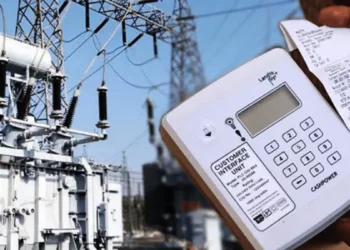The bulk of the food consumed in the world today is grown in rural areas – this is common knowledge. However, what many who are yet to visit the rural neighbourhoods don’t know, is that women constitute nearly 50 percent of the workforce on farms and plantations in low-income countries.
Women, especially in rural areas, are instrumental in the fight against hunger and malnutrition and in making food systems more productive and sustainable. Yet in some rural communities, it is considered a taboo for women to own capital or aspire to become wealthy and financially independent.
Women grow food, reduce food losses, make diets more diverse and agricultural produce more marketable along the agri-food value chain. Yet, in many parts of the world women continue to face significant social and economic discrimination.
They often lack access to productive resources, agricultural inputs, information, finance, services, markets, and social protection as well as technological and entrepreneurial know-how. In addition, many rural women are the primary caretakers in their households, which means they face heavy workloads that undermine their productive capacity and overall wellbeing. Rural women also face higher risks and greater burdens from climate change impacts.
As IFAD noted, in communities that rely largely on agriculture for their food and income, gender inequality translates into a large gender gap in agricultural productivity, for which countries pay a high price.
Investing In Women
According to Lola Masha, Executive Director of Babban Gona Farm Services, which operates mainly in the northern part of Nigeria, “empowering and investing in women, specifically in rural areas, will significantly increase productivity while reducing hunger and malnutrition.”
She relates how Babban Gona, undertook a study in the northern states to examine why the participation of women in agriculture was low and proactive steps that were taken to help improve on the level of women’s participation in the agricultural space.
“The bulk of the feedback was a distance from the input collection points, and their unwillingness to interact with male extension agents. In response to this, we have tried to ensure that our input collection centres are at most 15-25 minutes away, and recruited female extension agents for this segment.
“We also set up Women in Economic Development Initiative (WEDI) with the goal to increase the net incomes of women in our communities by providing them with a viable business opportunity, with the aim of transitioning them to become full Babban Gona farmer members at the end of a two (2) year period. So far we have been able to reach over 1,200 women interestingly across our existing hubs and hope to reach much more in order to ensure women’s inclusion in Nigeria agricultural sector,” Masha said.
Access to land
Women produce 80 percent of crops and own about one percent of the land. This illustrates the lack of security in ownership and in most cases of the one percent that own smaller plots to men that are less fertile.
By giving women the same access as men to agricultural resources could increase production on women’s farms in developing countries by 20 to 30 percent.
Access to funding
Women tend to face greater challenges when it comes to securing credit. They are generally less experienced with the ins and outs of borrowing from an institution, and without assistance and support, they find it difficult to access much-needed funding.
Women receive seven percent of the agricultural extension services and less than ten percent of the credit offered to small-scale farmers.
Limited access to new practices
Most agricultural extension focuses on large-scale commercial farming with limited research conducted on small farming techniques, which are often owned by women.
Limited access to technological advancements
Most advanced technology includes ploughs, cultivators, planters, harvesters and irrigation equipment. Most of these advancements are aimed at a male-specific audience, with improvements aimed to accommodate their requirements.
Women farmers often lack the know-how and the confidence to use improved technology and most of the new technologies.
Fewer market opportunities
Lack of market research and information limit women farmers to market opportunities. Women are confined to local markets where prices are generally lower than in urban markets.
Lack of infrastructure
Access to transport and logistics would improve the mobility of women farmers and they could sell more of their farm produce in time.
Global Coalition
As the International Women’s Day was marked across the globe, the three United Nations’ Rome-based agencies dedicated to food and agriculture have called for bolder action to achieve gender equality and empower women and girls in the agricultural sector and beyond.
Securing sustainable global food systems is only possible if women everywhere are empowered and their rights recognized and respected, stressed FAO, IFAD and WFP at an event marking International Women’s Day (IWD) at FAO headquarters.
This year’s IWD – with the theme “I am Generation Equality: Realizing Women’s Rights” – is an opportunity to review global progress on gender equality and women’s empowerment in the 25 years since the Fourth World Conference on Women, identify remaining gender gaps and outline the way forward.
“FAO will continue to play its part, in partnership with others, in strengthening gender equality, realizing women’s rights and accelerating their socio-economic empowerment. Only then will we reach our common goal: to eradicate hunger, ensure food security, eliminate all forms of malnutrition and make this world a better place for all of us,” said FAO Director-General QU Dongyu.
“Each year, International Women’s Day is both a cause for celebration and a call for action,” said Gilbert F. Houngbo, IFAD President. “Collectively, we can work together to create a gender-equal world. Not simply because it’s the right thing to do, but also because it makes sense. Increasing gender equality is critical to delivering strong economic growth. It can help cut down on extreme poverty and reduce chronic hunger. It can lead to longer-lasting peace. And it can benefit entire families and empower all those who face discrimination.”
“We know Zero Hunger will not be achieved just by giving people food. This is why our programs work to empower women so they can be financially self-sufficient and make their own decisions. By giving women and men an equal voice and an equal say on issues affecting their families and communities we can eradicate hunger and malnutrition,” said WFP Assistant Executive Director, Manoj Juneja.
FAO, IFAD, and WFP have said that they know from experience that when rural women have better access to resources, services, economic opportunities, and decision making, the results are palpable: Communities have more food, their nutrition status improves, rural incomes increase and food systems become more efficient and sustainable.
Not Enough Progress
The three Rome-based UN agencies also note that there are still gaps in knowledge about the differences between men and women in terms of their roles and opportunities in agriculture and how gender disparities play out in different ecological, cultural and political contexts.
According to them, what is well known, is that rural women are disproportionately vulnerable to food insecurity as well as economic and environmental shocks. Furthermore, harmful social norms and stereotypes on what women can or should do persist in many parts of the world, but these are difficult to address through conventional interventions.



